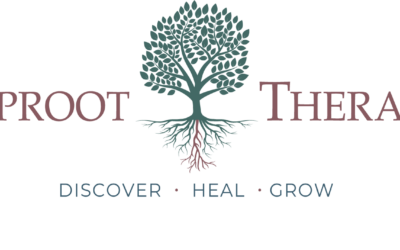Our blog is designed as a resource for those seeking to deepen their understanding of the human psyche and its expression through culture, therapy, and history. Below, you'll find an overview of the diverse topics we cover and an invitation to explore the categories that resonate most with your interests. Jungian Innovators Dive into the foundational ideas of depth psychology with articles that celebrate the works of Jungian visionaries such as Carl Jung, James Hillman, Marie-Louise von Franz, and more. These...
The Psychology of Orange-Red: Exploring the Paradox of Intensity and Transcendence
What does Red Orrange mean in a Dream? At the nexus of two of the most vivid and dynamic colors on the spectrum, orange-red embodies a powerful paradox - the confluence of the intense, ego-driven energies of red and the expansive, transcendent qualities of orange. This liminal hue seems to capture the very essence of the human experience, with its constant tension between the pull of individuality and the longing for unity, the struggle between the fires of desire and the aspiration for spiritual liberation. In...
The Psychology of Orange: Igniting Passion, Creativity, and Transformation
What Does Orange Mean in a Dream Vibrant, energetic, and captivating, the color orange has long been associated with the fires of passion, the spark of creativity, and the alchemy of personal transformation. From the warm glow of a sunset to the bold brushstrokes of an abstract painting, orange hues seem to embody the very essence of vitality, enthusiasm, and the courage to embrace change. In this comprehensive exploration, we will delve into the multifaceted nature of orange, examining its profound effects on...
The Psychology of Yellow: Illuminating the Mind, Empowering the Self
What Does Yellow Mean in a Dream? Radiant and energizing, the color yellow has long been associated with the power of the mind, the clarity of thought, and the assertion of the self. From the golden hues of the sun to the vibrant shades of blooming flowers, yellow seems to embody the very essence of illumination, both in the physical and the metaphysical sense. In this comprehensive exploration, we will delve into the multifaceted nature of yellow, examining its profound effects on our cognitive functions, its...
The Psychology of Yellow-Green: Promoting Balance, Harmony, and Emotional Resilience
What Does Yellow-Green Mean in a Dream Yellow-green, the vibrant hue that bridges the lush tranquility of green and the radiant vitality of yellow, holds a unique place in the spectrum of human emotion and experience. This dynamic, dual-natured color seems to embody the very essence of balance, growth, and transformation. In this in-depth exploration, we will delve into the multifaceted nature of yellow-green, uncovering its profound effects on our neurophysiology, its rich symbolic and archetypal meanings, and...
The Psychology of Green: Nurturing Emotional Bonds, Healing, and Harmony
What Does Green Mean in a Dream? Green, the color of life, renewal, and balance, holds a special place in our collective psyche. From the lush foliage of forests to the emerald hues of a calm sea, green hues speak to something deep within us - a primal longing for connection, peace, and vitality. In this comprehensive exploration, we'll delve into the multifaceted nature of green and its impact on our emotional, psychological and spiritual well-being. We'll start with a look at the latest scientific research on...
The Psychology of Blue-Green
What does Blue Green Mean in a Dream? Have you ever found yourself captivated by the soothing hues where blue meets green - in the shimmering scales of a fish, the iridescent feathers of a peacock, or the tranquil waters of a mountain lake? This mesmerizing color, occupying the liminal space between cool and warm, water and earth, sky and sea, seems to hold a key to unlocking profound states of emotional healing, balance and wholeness. In this deep dive article, we'll explore the multifaceted significance of...
Blue: The Color of Authentic Communication, Self-Expression and Inner Truth
The Psychology of Blue: Authentic Communication, Self-Expression and Inner Truth Blue, the color of the clear sky and deep ocean, has long been associated with calm, trust, and expansive awareness. From midnight indigo to tropical turquoise, blue hues invite us to explore realms of introspection, intuition, and profound self-expression. In this comprehensive article, we'll dive deep into the multi-layered meaning of blue - from the latest research on how blue light affects brain function, to the rich symbolism of...
Indigo: The Color of Insight, Intuition and Inner Vision
What Does Indigo Mean in a Dream? Indigo, the deep blue-violet hue that falls between blue and violet on the visible spectrum, has long been associated with intuition, perception, and the inner realms of consciousness. From its effects on brain function and cognition to its rich symbolic and spiritual associations, indigo invites us to explore the mysteries of the mind and the wisdom of the soul. In this in-depth article, we'll delve into the neurobiology, psychology, and cultural significance of indigo,...
Violet: The Color of Spiritual Transformation and Transcendent Awareness
What Does the Color Violet Mean in a Dream? Violet, a color that sits at the edge of the visible spectrum, has long been associated with spirituality, creativity, and altered states of consciousness. From its effects on neurobiology to its rich symbolic significance across cultures and religions, violet invites us to explore the frontiers of human perception and experience. In this article, we'll delve into the science and symbolism of violet, examining how this enigmatic hue relates to Jungian psychology,...
The Tree of Life: A Universal Symbol of Growth, Connection and Transformation
Here is the revised essay with more integrated links: What do trees in Dreams Symbolize? The Tree of Life is one of the most pervasive and enduring symbols in human history, appearing in the art, myths and religious traditions of cultures around the world. From the ancient Middle East to medieval Europe to indigenous societies of the Americas, the Tree of Life has captured the human imagination as a powerful representation of growth, interconnectedness, and the cycle of birth, death and renewal. At its most...











